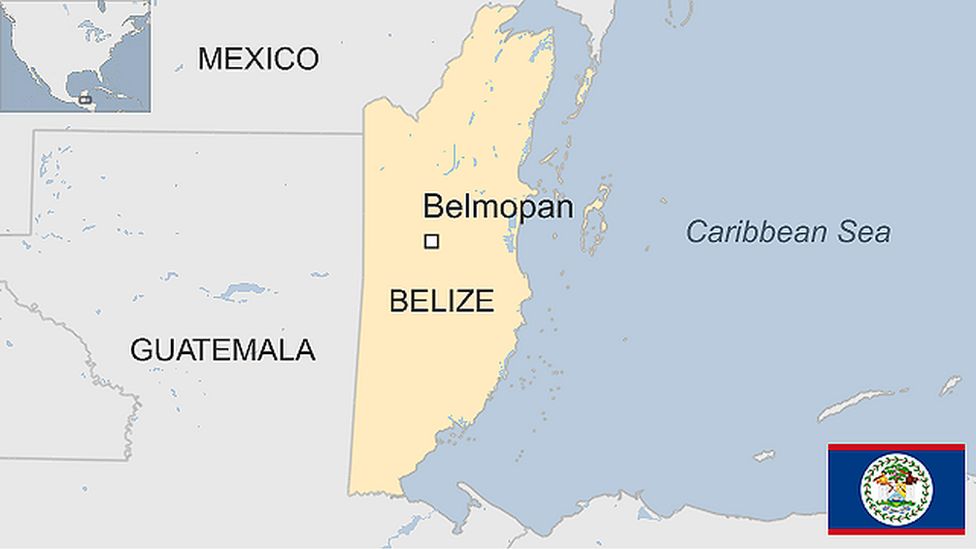Belize country profile
- Published

Tucked between the Caribbean Sea and the rainforest on the eastern coast of Central America, Belize is the home of a small and diverse nation.
The country, formerly known as British Honduras, was the United Kingdom's last colony on the American mainland and still maintains strong ties with Britain.
Today Belize, which considers itself part of both the Caribbean and Central America, is cultivating relations with Latin America and the United States, although there is a lingering dispute with neighbouring Guatemala, which has made claim to part of Belize's territory in the past.
Tourism is a major source of foreign currency. Belize's attractions include wildlife, Mayan ruins and one of the longest barrier reefs in the world.
Belize has a problem with violent crime, largely drug-related, and the trafficking of narcotics to the US, however. In 2011 Belize was added to a US blacklist of countries considered to be major producers or transit routes for illegal drugs.
- Read more country profiles - Profiles by BBC Monitoring
BELIZE: FACTS
- Capital: Belmopan
- Area: 22,966 sq km
- Population: 441,471
- Language: English, Belizean Creole, plus Spanish, Mayan, German, Garifuna, Chinese
- Life expectancy: 71 years (men) 77 years (women)
LEADERS
Head of state: King Charles III is the head of state, represented by a governor general
Prime minister: Johnny Briceño
On 11 November 2020, the People's United Party (PUP), led by Johnny Briceño, defeated the United Democratic Party (UDP) for the first time since 2003, having won 26 seats out of 31 to form a government.
In 2008, Guatemala and Belize held referendums in which voters in both countries decided to submit the issue of their historic border dispute to the International Court of Justice (ICJ). As of June 2022, both countries confirmed that they had submitted their initial briefs to ICJ for consideration.
MEDIA
Belize compares favourably for media freedom with neighbouring countries.
There are no daily newspapers. Radio and TV outlets are privately-owned.
Internet use is limited by a lack of infrastructure and high prices.
TIMELINE
Some key dates in the history of Belize:
16th-17th centuries - The Spanish arrive, but fail to convert the indigenous Maya to Christianity.
1600s - The area of present-day Belize becomes part of Spain's possessions in Central America and the Caribbean; British buccaneers and woodcutters begin to settle around the Belize river.
1763, 1783 - Spain signs treaties granting British subjects the privilege of wood-cutting, but retains sovereignty.
1798 - Spain tries to remove British settlers from the area by force but fails.
1859 - Britain and Guatemala sign treaty defining border with Belize.
1862 - Belize formally declared a British crown colony and named British Honduras.
1893 - Mexico renounces claim to Belizean territory.
1930s - Economy hit by Great Depression; Belize City largely destroyed by hurricane.
1954 - Constitutional reforms give Belize limited autonomy.
1964 - New constitution gives Belize full autonomy and introduces universal adult suffrage and a two-chamber parliament.
1970 - Belmopan replaces Belize City as capital.
1973 - The country changes its name from British Honduras to Belize.
1981 - Belize becomes independent, but Guatemala refuses to recognise it. About 1,500 British troops remain to defend the country against Guatemalan territorial claims.
1992 - Guatemala recognises Belize's independence, although the territorial dispute remains.
1993 - Britain says it will withdraw troops by 1994 following Guatemalan recognition of Belize.
2002 - Belize, Guatemala agree on a draft settlement to their long-standing border dispute at talks brokered by the Organisation of American States (OAS). The deal, which proposed referendums in both countries, is rejected by Guatemala in 2003.
2005 - Rioting breaks out in the capital during a wave of anti-government protests.
2011 - Belize is added to US blacklist of countries considered to be major producers or transit routes for illegal drugs.
2008 - Guatemala and Belize hold referendums and submit their border dispute to the International Court of Justice (ICJ) for arbitration.
2022 - Both countries submit their initial briefs on the border dispute to ICJ for consideration.
- Published8 January
- Published31 March 2023
- Published15 January
- Published13 February
- Published4 April 2023